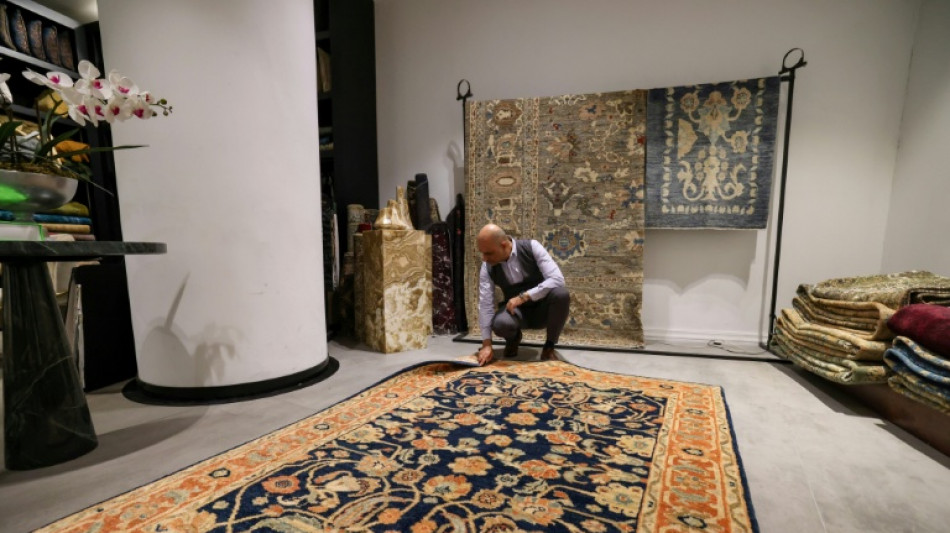
-
 Liverpool boss Slot says Isak in 'final stages of rehab'
Liverpool boss Slot says Isak in 'final stages of rehab'
-
Airbus ready to build two new European fighter jets if 'customers' ask

-
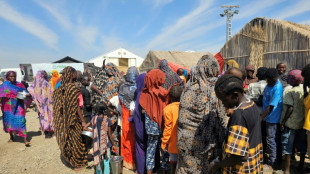 UN Sudan probe finds 'hallmarks of genocide' in El-Fasher
UN Sudan probe finds 'hallmarks of genocide' in El-Fasher
-
Costelow starts, Hamer-Webb makes Wales debut in Six Nations clash with Scotland

-
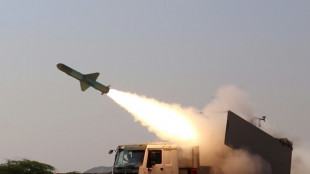 Facing US warnings, Iran defends right to nuclear enrichment
Facing US warnings, Iran defends right to nuclear enrichment
-
Ex-South Korea leader Yoon gets life in prison for insurrection
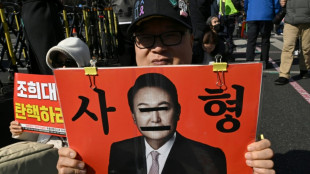
-
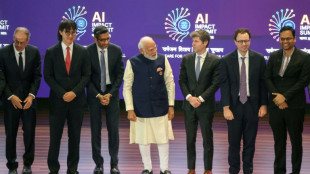 OpenAI's Altman says at India summit regulation 'urgently' needed
OpenAI's Altman says at India summit regulation 'urgently' needed
-
British couple held in Iran sentenced to 10 years

-
 West Indies ease past Italy to tune up for T20 Super Eights
West Indies ease past Italy to tune up for T20 Super Eights
-
At least 16 killed after building collapses in Pakistan following blast
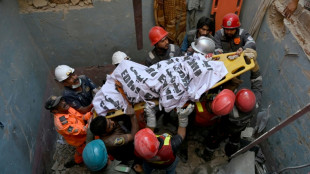
-
 Summit photo op fails to unite AI startup rivals
Summit photo op fails to unite AI startup rivals
-
OpenAI's Altman says world 'urgently' needs AI regulation

-
 Horror comics boom in our age of anxiety
Horror comics boom in our age of anxiety
-
Turkey fires up coal pollution even as it hosts COP31

-
 London fashion week opens with tribute to one of its greats
London fashion week opens with tribute to one of its greats
-
Ex-S.Korea leader Yoon gets life in prison for insurrection
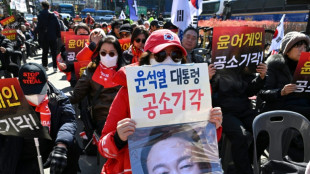
-
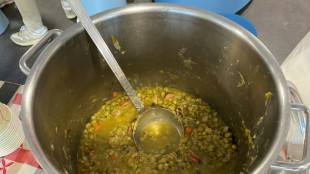 Pea soup, veggie mash contest warms up Dutch winter
Pea soup, veggie mash contest warms up Dutch winter
-
South Korea's Yoon: from rising star to jailed ex-president
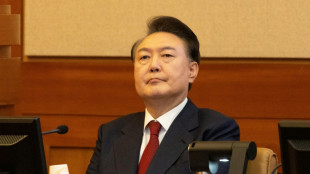
-
 Private companies seek to import fuel amid Cuban energy crisis
Private companies seek to import fuel amid Cuban energy crisis
-
India search for 'perfect game' as South Africa loom in Super Eights

-
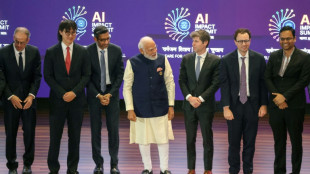 India's Modi calls for inclusive tech at AI summit
India's Modi calls for inclusive tech at AI summit
-
Airbus planning record commercial aircraft deliveries in 2026

-
 Elections under fire: Colombia endures deadliest campaign in decades
Elections under fire: Colombia endures deadliest campaign in decades
-
Traore backs 'hungry' Italy against France in Six Nations

-
 All-rounder Curran brings stuttering England to life at the death
All-rounder Curran brings stuttering England to life at the death
-
South Korea court weighs death sentence for ex-president Yoon
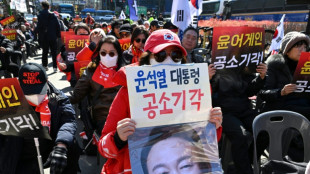
-
 Tech chiefs address India AI summit as Gates cancels
Tech chiefs address India AI summit as Gates cancels
-
Australia rejects foreign threats after claim of China interference

-
 Somali militias terrorise locals after driving out Al-Qaeda
Somali militias terrorise locals after driving out Al-Qaeda
-
Peru picks Balcazar as interim president, eighth leader in a decade

-
 Australian defence firm helps Ukraine zap Russian drones
Australian defence firm helps Ukraine zap Russian drones
-
General strike to protest Milei's labor reforms starts in Argentina
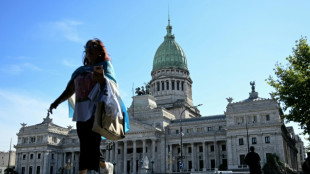
-
 Cuban opposition figure Ferrer supports Maduro-like US operation for Cuba
Cuban opposition figure Ferrer supports Maduro-like US operation for Cuba
-
High-stakes showdown in Nepal's post-uprising polls

-
 Asian markets rally after Wall St tech-led gains
Asian markets rally after Wall St tech-led gains
-
After Greenland, Arctic island Svalbard wary of great powers

-
 Veteran Slipper set for new Super Rugby landmark
Veteran Slipper set for new Super Rugby landmark
-
Sudan's historic acacia forest devastated as war fuels logging
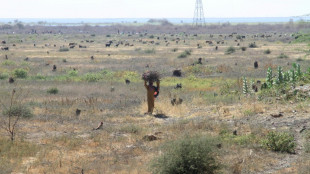
-
 Deadly Indonesia floods force a deforestation reckoning
Deadly Indonesia floods force a deforestation reckoning
-
Australia vow to entertain in bid for Women's Asian Cup glory

-
 Afghan barbers under pressure as morality police take on short beards
Afghan barbers under pressure as morality police take on short beards
-
Jail, disgrace and death: the dark fates of South Korean leaders
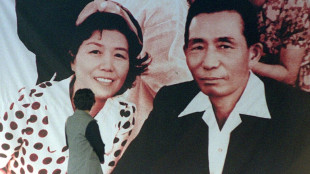
-
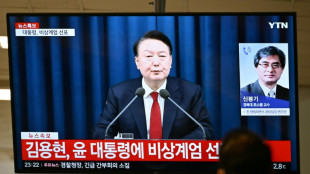 S. Korea court weighs death sentence for ex-president Yoon
S. Korea court weighs death sentence for ex-president Yoon
-
MotoGP dumps Phillip Island for Adelaide street circuit

-
 Trump kicks off his 'Board of Peace,' with eye on Gaza and beyond
Trump kicks off his 'Board of Peace,' with eye on Gaza and beyond
-
Walmart results expected to highlight big plans for AI

-
 Australia Olympic TV reporter apologises after slurring words
Australia Olympic TV reporter apologises after slurring words
-
Core Critical Metals Corp. Announces Acquisition of the Advanced Lucky Mike Silver-Copper-Tungsten Project
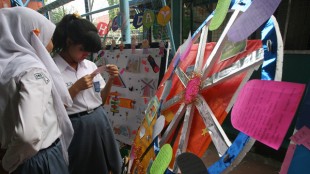
-
 LSEG Launches Model-as-a-Service
LSEG Launches Model-as-a-Service
-
Formation Metals Appoints Roger Rosmus to Newly Established Advisory Board


Iran's carpet industry unravelling under sanctions
Once a symbol of cultural prestige, Iran's handmade rugs are no longer selling as fast as they once did, as sanctions weigh on an already troubled economy and buyers' tastes change.
Commanding more than $2 billion in export revenues in its heyday of the early 1990s, the industry now struggles to scrape together around $40 million, marking a dramatic collapse of more than 95 percent.
The reimposition of sanctions in 2018 meant the age-old craft lost what was traditionally its largest market -- the United States.
"In the years when the unkind and cruel US sanctions on the hand-woven carpet sector were imposed... we lost the US, the buyer of more than 70 percent of Iranian hand-woven carpets," Zahra Kamani, head of Iran's National Carpet Centre, told state TV.
In 2017, just before the sanctions were revived, rugs were still considered one of the country's key non-oil exports, with a revenue of more than $400 million.
But Iran's customs organisation said that during the last year of the Persian calendar that ended in March, exports stood at just $41.7 million.
Exports went to 55 countries that year, topped by Germany, the United Arab Emirates, Japan and China.
In the interim, competitors such as India, China, Nepal and Pakistan have seized the opportunity, seeking to fill the gap in the global market.
- 'High price tag' -
Some of those rugs even make their way to Iran, where, according to Kamani, at least two million people, including women in rural areas, depend on the carpet-weaving industry for their livelihood -- sometimes earning as little as a few dollars a day.
Carpet trader Hamed Nabizadeh told AFP that "Iran is importing carpets from other countries, such as India, Turkey and China. We are losing a part of our domestic sales volume in the Iranian market due to these imports".
For decades, Western tourists would pass through Iran, picking up rugs as souvenirs or gifts. But with the country's tourism industry also hit by travel warnings and hostile relations, fewer foreigners are visiting, translating to fewer rug sales.
Nabizadeh moreover says that even the tourists who come "might not be interested in our work as consumer tastes have changed" and "the price tags are quite high".
"It is somewhat difficult for even someone living in a European country to buy a silk carpet for, say, $30,000 to $40,000. The transportation of the carpet is also quite challenging for tourists," he added.
Experts attribute the market slump to a tangle of economic and political factors.
Broad international sanctions have cut off vital markets, while flawed domestic currency and foreign-exchange policies -- especially those restricting repatriation of export revenues -- have crippled competitiveness.
Compounding the issue, rising production costs and weak government support have squeezed the industry.
- Revitalising industry -
Iranian officials insist that the revival of the industry and the art of carpet-weaving, which dates back to the Bronze Age of Persia, is possible.
"We have lost some international markets, but we hope that with the country's trade and currency laws we can resuscitate this industry," Trade Minister Mohammad Atabak was quoted as saying by state news agency IRNA in June.
"We are trying to promote and facilitate exports for the country's merchants with newly signed agreements," he added.
For Nabizadeh, the way out of this crisis is to pay more attention to "current trends in decoration".
"We should produce carpets based on those trends and not be too prejudiced that the carpet must have the same old shapes and patterns."
He cited "attracting online customers through social media" and "creating strong branding for carpets" as other possible solutions.
But with the collapse of the national currency against the dollar, even the domestic market is at risk of evaporating.
"Even though I always wanted handwoven carpets for my dowry and my family had promised me that, they couldn't afford them. Instead, we opted for factory-made ones," said Shima, a 31-year-old bride-to-be.
"It is an age-old marriage tradition that the bride should provide the carpets of the house," said Shima, who did not wish to provide her full name to maintain her privacy.
"However, many families are choosing factory-made rugs these days because of their lower prices or do not buy carpets altogether if they are of the more needy classes."
Now, with Iran increasingly losing domestic customers and global markets dominated by lower-cost imitations, the Persian rug risks becoming a relic of a lost golden age, with its legacy hanging by a thread.
Ch.Kahalev--AMWN


